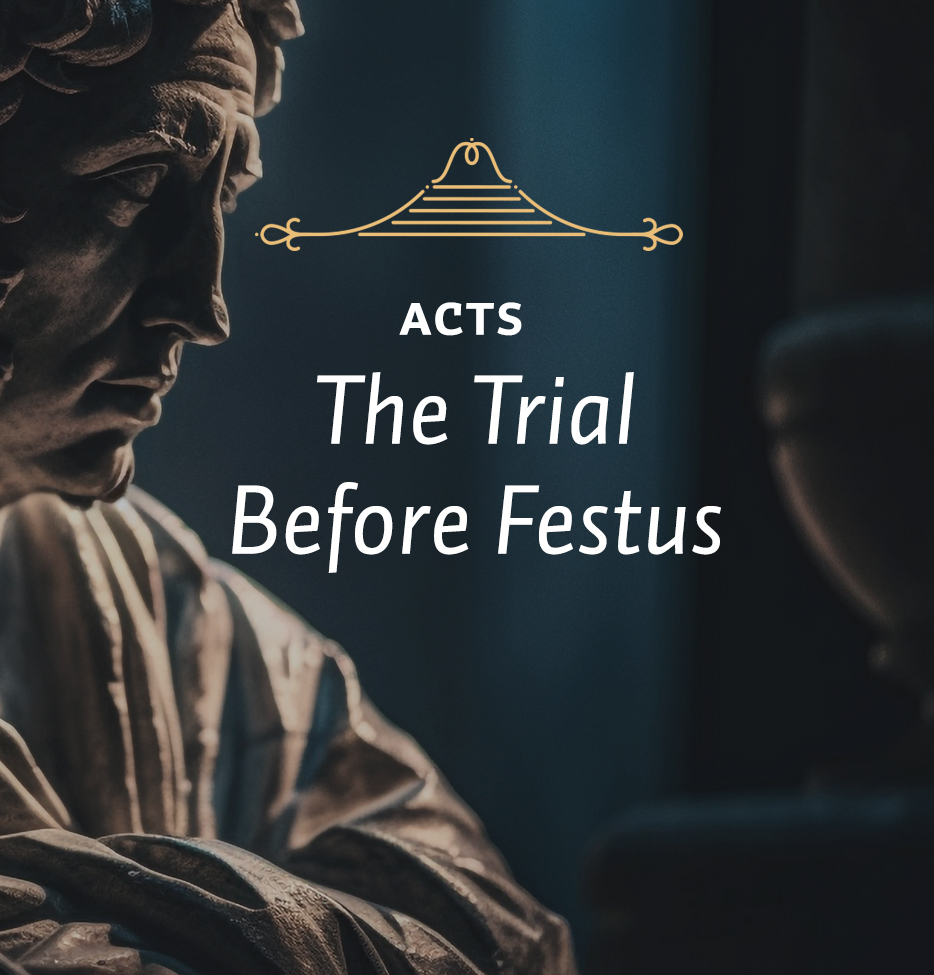One of the amazing things about God’s work in the life of a Christian is the way in which God uses circumstances to bring about His own desirable ends. These are not necessarily large or dramatic circumstances, like the death of someone close to us, an exciting new job opportunity, or a world war. Often it is little things that God uses, like an offhand remark in conversation, a missed appointment, or a “chance” meeting. The apostle Paul has been an example of that many times in the early chapters of Acts. We see an additional unfolding of God’s plan for his life through circumstances in the chapter to which we come to now.
Think of what the Lord had said to Paul when he was in Jerusalem after having been taken into custody by the Romans. Paul was apprehensive. But Jesus appeared to him saying, “Take courage! As you have testified about me in Jerusalem, so you must also testify in Rome” (Acts 23:11).
That Paul was to testify in Rome was the goal to which this late portion of his life was headed. But what a vast tapestry of circumstances God used to bring it about! Some go back quite far in Paul’s life. He was a Roman citizen, for example. Until now this had not seemed to have been terribly important. But suddenly it became very important. It spared Paul a beating in Acts 22 and became the basis of his appeal to Caesar in chapter 25.
Again, there were the false accusations brought against him by the Asian Jews who just happened to be in Jerusalem the same time he was. Paul had no reason to suspect they would be there. He certainly did not anticipate their accusations. But suddenly there they were. They knew his doctrinal beliefs and teaching, that he espoused Christian freedom from the Old Testament ceremonial law that concerned them so much. These men started a riot, which in turn led to Paul’s arrest.
It was circumstantial (but nevertheless of God) that the man who was in charge of the arresting party was an outstanding officer.
It, too, was circumstantial (but, again, nevertheless of God) that when the zealots took an oath, saying they would not eat or drink until they had killed Paul, thus setting up an assassination plot, Paul’s nephew, a young boy, just happened to be there and overheard it. He came to Paul, and then at Paul’s direction was able to tell the story to the Roman commander, who put together a detachment of soldiers and had Paul safely escorted from the city. The soldiers brought him to Caesarea.
Paul appeared before Felix. If Felix had done the right thing, he would have acquitted Paul. That is what we would have desired for him. We would have said, “Let’s hope that Paul is set free.” But that was not the way God worked things out. Felix delayed for two years until eventually, as we find out in Acts 24:27, Felix was succeeded by a man called Porcius Festus. Festus became the governor of Judah at this point.
It was while he was appearing before this man that Paul made his appeal to Caesar. Festus was a decisive man, unlike Felix. He decided immediately. So the wheels started turning, and the apostle was soon transferred to Rome where he testified to his guards and eventually, we must assume, even had opportunity to witness before the court of the Caesars.
What was true for Paul is true for us as well. If you are a Christian, you should be able to look back over your life and see how God has used many little circumstances to bring you to where you are. In some cases, God may even have worked through these “trivial” circumstances to bring you to faith.
It is worth remembering things in your life that have been like that. This is because, when we look back we can learn to be wise as Christians. We can say, “Isn’t it wonderful how God used these circumstances in my life. Isn’t He a great God!” Yet in some new set of circumstances, especially when they do not seem very nice, we find ourselves questioning God’s sovereignty and saying, “Oh, my goodness, I wonder if God knows what He is doing now.”
We have to learn from the past and remember that there are no accidents with God. Nothing ever rises up suddenly to startle the Omniscient, to make Him scratch His head over some great dilemma in our lives and ponder what to do. God never reacts that way. He knows the end from the beginning, and He has planned it all—every little incident that comes into your life—the failures, as well as the successes; the disappointments, as well as the moments of happiness; the frustrations as well as the times of satisfaction. All that is from God, and He is using it to accomplish His purposes. His greatest purpose is to mold you into the image of Jesus Christ. You may trust Him to do it.






